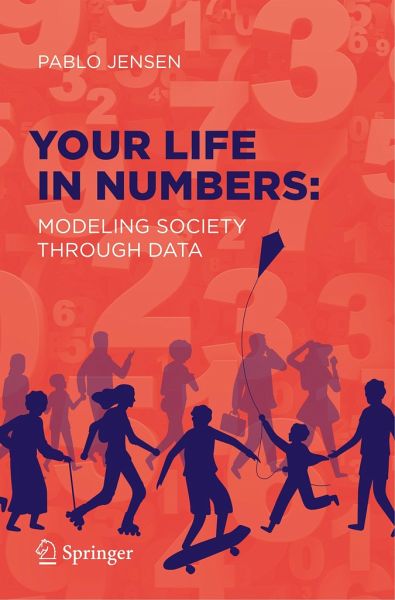
Your Life in Numbers: Modeling Society Through Data

PAYBACK Punkte
10 °P sammeln!
More than 300 years ago, Isaac Newton created a mathematical model of the solar system that predicted the existence of a yet unknown planet: Neptune. Today, driven by the digital revolution, modern scientists are creating complex models of society itself to shed light on topics as far-ranging as epidemic outbreaks and economic growth. But how do these scientists gather and interpret their data? How accurate are their models? Can we trust the numbers?With a rare background in physics, economics and sociology, the author is able to present an insider's view of the strengths, weaknesses and dange...
More than 300 years ago, Isaac Newton created a mathematical model of the solar system that predicted the existence of a yet unknown planet: Neptune. Today, driven by the digital revolution, modern scientists are creating complex models of society itself to shed light on topics as far-ranging as epidemic outbreaks and economic growth. But how do these scientists gather and interpret their data? How accurate are their models? Can we trust the numbers?
With a rare background in physics, economics and sociology, the author is able to present an insider's view of the strengths, weaknesses and dangers of transforming our lives into numbers. After reading this book, you'll understand how different numerical models work and how they are used in practice. The author begins by exploring several simple, easy-to-understand models that form the basis for more complex simulations. What follows is an exploration of the myriad ways that models have come to describe and define our world, from epidemiology and climate change to urban planning and the world chess championship.
Highly engaging and nontechnical, this book will appeal to any readers interested in understanding the links between data and society and how our lives are being increasingly captured in numbers.
With a rare background in physics, economics and sociology, the author is able to present an insider's view of the strengths, weaknesses and dangers of transforming our lives into numbers. After reading this book, you'll understand how different numerical models work and how they are used in practice. The author begins by exploring several simple, easy-to-understand models that form the basis for more complex simulations. What follows is an exploration of the myriad ways that models have come to describe and define our world, from epidemiology and climate change to urban planning and the world chess championship.
Highly engaging and nontechnical, this book will appeal to any readers interested in understanding the links between data and society and how our lives are being increasingly captured in numbers.












